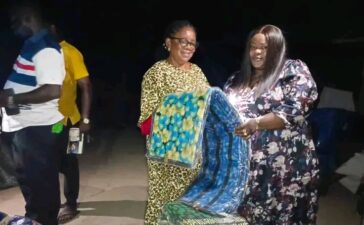Join our WhatsApp channel HERE for the latest Benue news and updates!
AyiWulu Baba AyiWulu, a legal practitioner from Nasarawa State, has raised a disturbing alarm, claiming that terrorists responsible for attacks on communities in Benue and Nasarawa states are taking refuge in the Nasarawa-Lawyer axis, particularly around Keana Local Government Area.
In a strongly worded public statement culled from *Nasarawa Mirror*, AyiWulu pointed to the Giza Development Area, which he described as being overcrowded with Fulani strangers who are neither herders nor of known origin. He alleged that these individuals have occupied Tiv settlements with evident relics of displacement, claiming to have purchased the land from local chiefs whom he accused of greed and complicity.
“We can no longer go to farm freely around Kwara and Kadarko axis,” AyiWulu stated, blaming two local chiefs for selling ancestral lands and supporting the takeover of indigenous homes. He claimed knowledge of more than ten completely displaced communities within the Kwara and Kadarko areas and expressed readiness to personally lead security agents to the alleged hideouts if the government is committed to combating terrorism.
According to him, the same region serves as a safe haven from which terrorists launch attacks on neighboring Benue and Nasarawa communities before retreating undetected.
AyiWulu called for the immediate constitution of a commission of inquiry to uncover hidden agendas and bring clarity to the crisis. While commending security operatives—including the OC Anti-Kidnapping Unit of the Nasarawa State Police Command, the DSS, NSCDC, and the military—for their efforts despite limited resources, he stressed that a deeper investigation is essential to dismantle the networks enabling such violence.
The allegations, if substantiated, point to a complex interplay of land disputes, ethnic tensions, and security lapses that continue to fuel instability in Nigeria’s North-Central region. As farmers abandon their fields and communities live in fear, the call for decisive government action grows louder.
With insecurity remaining a top concern for residents and leaders alike, AyiWulu’s bold disclosure has reignited debates on the need for transparency, accountability, and coordinated intervention to restore peace and protect vulnerable populations in the affected areas.
















